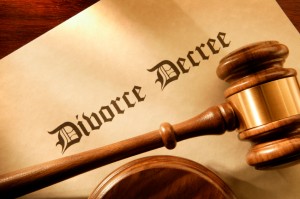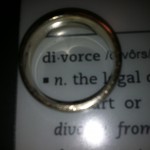In Part 1 of this series, I shared a little of my personal story and discussed the importance of processing, at a deep emotional level, the reality that we are not alone. Others who have gone before us have experienced similar struggles, pain, sorrow, horror, grief, and unanswered questions.
You are not alone!
In this post, we will discuss what it means to live as God’s image bearers in a broken world.
We Live in a Broken World
For me, this is a good starting point in beginning to make some sense out of things. The Genesis account tells us God created the heavens and the earth. He created the seas and the dry land. He separated light from darkness. He created the marine life, the land animals, and the birds of the air. Finally, God created mankind in His own image, placing Adam and Eve in authority over all the earth.
God said it was good.
As God completed each step of creation, He declared it to be good. When God finished creation, He declared all of creation to be good. Then God rested.
God did not create a world filled with sorrow, pain, and evil. God created a world that was good.
God did not create mankind filled with wickedness, selfishness, greed, and hatred. God created man in His own image, both male and female, and they were good.
Then something went horribly wrong.
The serpent entered the garden, spinning his lies, planting seeds of doubt and dissatisfaction. Adam and Eve fell prey to the serpent’s web of deceit. They betrayed God and entered into covenant with evil.
God had warned Adam, “In the day you eat thereof, you will surely die.” From that day to this, sin and death have ruled this world.
The sorrow, pain, and evil we each experience in this life are a direct result of living in a fallen world. This is the fruit “of the tree of the knowledge of good and evil” of which Adam and Eve partook. We were created good, in the image of God, in covenant with Him. We have fallen into covenant with evil, whose image we now also bear.
Why Did God Not Intervene?
Sure, God created a good world filled with good animals, overseen by good people created in His own image. Yes, Adam rejected God’s goodness and embraced the serpent’s lies. Yes, we now live in a broken fallen world filled with sinful people… a world in which evil flourishes and godliness seems all too rare. Yes, our pain, sorrow, grief and loss is a direct result of living in this fallen world. Evil is a consequence of Adam’s belief in the serpent’s lies… not anything God has wrought or willed.
Yet, we cannot help but wonder. Knowing God is all-powerful… knowing God is creator of all… knowing God declared His creation to be good… knowing God is good… knowing God loves us deeply… we cannot help but wonder… why does God not intervene?
Why did God not intervene in the garden to prevent Adam and Eve from embracing the serpent’s lies? Why did God allow the serpent to enter the garden? Why did God create Adam and Eve with a weakness susceptible to the serpent’s temptation?
On a more personal level, why does God allow evil to flourish today? Why does God allow His children to suffer at the hands of evil abusers? Why does God allow judges to make unjust decisions? Why does God allow pastors to side with abusers against the abused? Why do wicked people seem to flourish while godly people seem to suffer? Why does God not intervene?
God does intervene!
In the garden, God warned Adam in advance. God warned Adam to stay away from evil. God clearly told Adam the consequences of eating the fruit “of the tree of the knowledge of good and evil,” “for in the day you eat thereof, you will surely die.”
God did intervene, but God also honored Adam’s free will. God had given Adam authority over all the earth… which meant Adam also had the authority to plunge the whole earth into darkness if he chose to.
Today, God still intervenes.
God has spoken to you. God has called you to right relationship with Himself. He has promised to never leave you nor forsake you as you place your trust in Him.
God has also spoken to your abusers. He has spoken to the judges who have made decisions.
I can say with a high degree of confidence, if you look back at your life and the events surrounding your trials and grief you can see glimpses of God’s intervention… the temporary softening of an otherwise hardened heart… miraculous protection from danger… provision made when it was needed most… strength to do what was needed… wisdom provided to make hard choices.
God has not been silent. God has been intervening all along.
However, God also honors human free will. God has answered your prayers to speak to your abuser’s heart… but has not forced the abuser to submit his will to God.
Evil flourishing is not a sign of God’s lack of power nor lack of concern. Rather, it is evidence of how respectful God is of the free will with which He has gifted each of us.
All Things Work for Good
Pain, sorrow, grief, suffering and temptation are part of the human experience in a fallen world. For believers and unbelievers alike, for both the wicked and the righteous, these are simply a part of life.
For the believer, though, God provides comforting promises.
First, God promises to be our faithful friend who never leaves nor forsakes us. God does not promise to spare us the consequences of living in a fallen world. He does, however, promise to be with us as we traverse those trials.
Second, God promises “all things work together for the good of those who love God, who are called according to His purpose,” for the fulfillment of His divine will. For all who believe in Christ, God has preordained a divine destiny to be conformed to the image of Christ… much as Adam was created in the image of God… to reflect His glory… each in our own unique way… as we were created and destined to do.
God uses every experience, every life circumstance, to bring about this purpose in our lives.
No, God does not bring evil into our lives. No, it is not God’s will for His children to suffer. However, God uses the evil wrought by wicked people to bring about His good will and divine purpose in each of our lives.
As Joseph said to his brothers, “What you intended for evil, God has used for good.”
A Light in the Darkness:
The New Testament gospel accounts describe Jesus as The Light of the World and proclaim, “the people living in darkness have seen a great light.”
The ministry of Christ includes being a light in the darkness. In a fallen world filled with sin and blindness, Jesus is the light. He is the way, the truth, and the life.
Christ calls us to the same ministry. We are called to be a light in the darkness.

Reflected Glory!
Being a light in the darkness requires living in darkness while walking in the light of God’s truth. This means we still experience the darkness. We still experience the consequences of sin, both our own sin and the sins of others. We still experience the fruit “of the tree of the knowledge of good and evil.”
Yes, God could whisk us home to Heaven the instant we ask Him to be our Savior. He doesn’t do that. Instead, He commissions us to the ministry of being a light in the darkness… which includes the experience of living in a world filled with darkness.
As we give those painful experiences to God, He uses them to equip us for ministry. He uses them to draw us into closer relationship with Himself. He uses them to help us let go of those stale legalistic assumptions of being able to prevent bad things from happening if we just live righteously enough. He uses them to help us learn to rely completely on Him. He uses them to help us relate to and empathize with others going through similar experiences. He uses them to give us wisdom we can share with others as we point others to Christ.
We are called to be God’s image bearers in a world filled with darkness.
This is the second post in a series on the topic “When Evil Prospers.” Please join me for the next post in this series, in which we will discuss how Jesus Christ understands and shares in our suffering.

 One July morning in 1994, I found myself sitting in my pastor’s living room. He had graciously responded to my desperate phone call with an invitation to come over and talk. My wife had left me, and I had no idea what to do. All I wanted was God’s best for our family of four young children.
One July morning in 1994, I found myself sitting in my pastor’s living room. He had graciously responded to my desperate phone call with an invitation to come over and talk. My wife had left me, and I had no idea what to do. All I wanted was God’s best for our family of four young children.